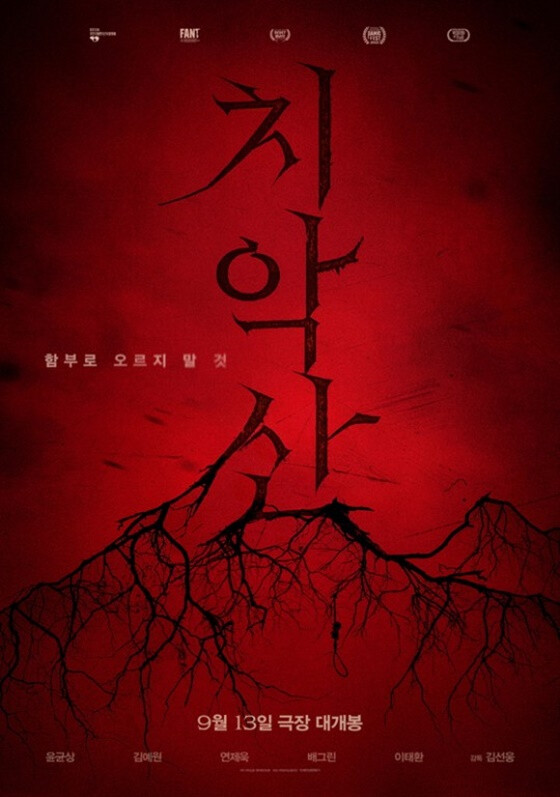Doho Entertainment
In a brewing clash between artistic expression and local concerns, the municipal government of Wonju in Gangwon Province, South Korea, announced on Monday its intent to file a lawsuit aimed at preventing the release of the horror film "Chiaksan," scheduled to debut on September 16th.
The city administration is seeking a legal injunction to halt the film's release and is also preparing to sue for potential damages that the movie might inflict upon the city and its inhabitants.
Directed by Kim Seon-woong and featuring Yoon Kyun-sang, "Chiaksan" is set in the year 1980 and weaves a ghostly narrative centered around a grisly dismemberment case within the Chiaksan region.
The legal action taken by the Wonju city government is a response to the refusal of Doho Entertainment, the production company behind the film, to alter its title. The local administration had earlier implored the firm to reconsider the title, citing concerns that the depiction of Chiaksan as the backdrop for a gruesome crime might evoke anxiety among residents and potentially incite copycat offenses following the movie's release.
Wonju Mayor Won Kang-su asserted, "We will take resolute action to ensure none of our 360,000 Wonju city residents endure any harm due to the film's release. We cannot permit this ghostly tale, hitherto unfamiliar to our locality, to tarnish the reputation of our city, which boasts the distinction of being one of the country's safest and healthiest."
Doho Entertainment contends that changing the film's title would significantly disrupt its storyline, as the narrative intricately intertwines with the concept of Chiaksan. The production company also pledges to issue statements clarifying that the film's setting, characters, and plot are entirely fictional.
"We regret the unease experienced by both the community and the city administration. However, changing the title would compromise the narrative's cohesiveness, and re-shooting the film from scratch is impractical due to the lead actor's impending enlistment," the production firm conveyed in an official statement.
This is not the first instance where a film title has ignited controversy within South Korea. The 2016 horror film "The Wailing," originally titled "Gokseong" after the county in South Jeolla Province, sparked debates about potential harm to the county's image due to its disturbing themes. Interestingly, the movie's popularity spurred increased tourism to the area.
A parallel situation unfolded with the release of the 2018 horror film "Gonjiam: Haunted Asylum."
Amid the discourse, voices within the production industry advocate for preserving the creative freedom of filmmakers. One industry worker contended that horror and thriller genres frequently leverage real locations to enhance the immersive experience for viewers.
Cultural critics and locals alike underscore the potency of pop culture's impact on public perception. Pop culture analyst Kim Hern-sik opined that creative enterprises should adopt a more circumspect and sensitive approach, considering the potential ramifications on local businesses and the overall community fabric.
Sayart.net
Kang In sig, insig6622@naver.com




